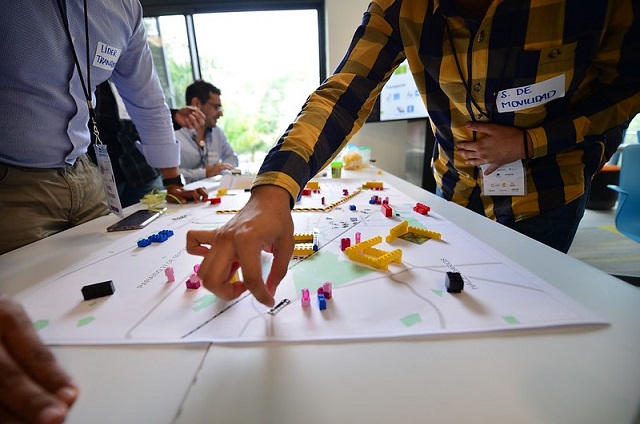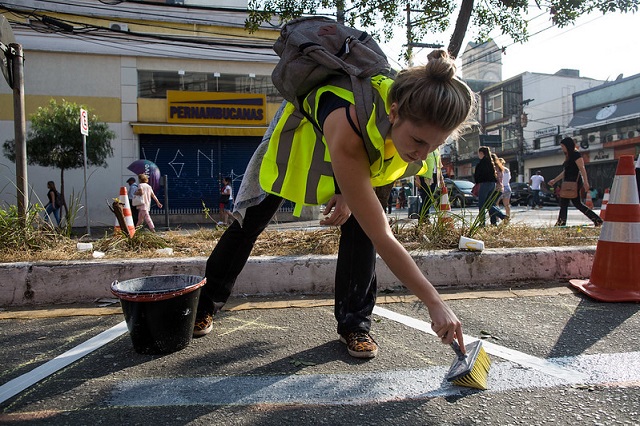
This is the first entry in a series on capacity development for city leaders.
By 2050, the global urban population is expected to grow by 2.5 billion people, continuing a decades-long trend of urbanization. And as the number of people in cities has grown so has pressure on urban leaders to be the ring leaders in solving many of the world’s major problems. From socioeconomic equality, to safe and reliable transportation, access to jobs, health care, and education, to clean air, environmental sustainability, and climate change mitigation and adaptation, cities face a laundry list of questions they are expected to answer. These expectations emanate not only from their own constituencies, but from a host of international agreements such as the New Urban Agenda, Sustainable Development Goals, and Paris Agreement.
It’s a dizzying array of problems for anyone. But on top of that, every city is different, requiring tailored approaches and engagement with a unique constellation of local stakeholders. Today, there are more than 4,000 cities with at least 100,000 people. And by and large, most cities are not keeping up with demand for services.
The complex and interdependent challenges faced by cities cannot be addressed by technical experts alone. Cities are shaped by many different actors who are part of complex stakeholder ecosystems –public, private, civil society, academia, development agencies and more. The future of cities, to a large extent, will be determined by the capacity of individuals with different perspectives and desires to collectively identify these challenges, prioritize action and co-create solutions.
To catalyze change on such a scale, it’s clear we need not only new technologies and financing models, but new skills. We need to train people on how to implement technical solutions, how to lead effective coalitions and how to manage complex projects. And not just individuals, but whole organizations and institutions.
Beyond Knowledge Dissemination
There are myriad ways cities and organizations are working to meet this daunting demand for capacity development. The traditional approach concentrates resources on training individuals. But research indicates that without enhancing the surrounding culture, dynamics, and managerial structures that permit or constrain individuals, capacity development will not improve the capabilities of local governments.
Capacity is developed and practiced at three levels of impact: individual, team and institutional. We call this a “systemic approach” to capacity development. All three levels are connected and interdependent. All three should be kept in mind when creating a capacity development strategy.
Knowledge dissemination and technical training have long formed the core of WRI Ross Center’s capacity development activities. Our approach has been to build synergy between our research, the training sessions we provide based on that research and project-specific technical support we provide to cities. Though we haven’t always categorized such activities as “training,” engaging and facilitating dialogue across key stakeholders to galvanize action has also become a norm in our practice.
For example, Raahgiri Day in Gurgaon (and subsequently 72 other cities and 18 states across India) would not have happened without reflecting on lessons learned – both technical and political – from Bogotá’s car-free day, Ciclovia. And the “complete streets” movement in Brazil would not have been adopted or replicated at the same scale without decision-makers and practitioners discussing and testing the concept through the National Front of Mayors, a civil society organization with dozens of mayors. In both cases, knowledge dissemination happened in the context of sustained multi-stakeholder dialogue.

Towards a More Responsive Offer
One key lesson we’ve learned is that city officials don’t have the time to invest in theory. They need knowledge and skills they can apply immediately in real-world scenarios. The learning journey then becomes more about acquiring new tools that can help them, their teams and the wider communities they serve right away.
To support this need, we’ve created interactive workshops that help to impart concepts in contextualized and applicable ways. Our Safe Access to Mass Transit workshop in India, for instance, is built on principles from our Safe Access Manual, and uses interactive rather than lecture-based learning.
Similarly, a transit-oriented development (TOD) workshop we developed in Mexico utilizes role-playing activities to familiarize participants with the concept and how it can help shape more equitable, compact and connected cities. This type of hands-on experience facilitates education in a way that replicates the contexts in which participants will work and allows them to bring their own experiences and thoughts into the learning process.
We have also learned the value of co-creating training agendas with the audience. This critical step has pushed us to address specific knowledge gaps at the individual level, but also to introduce new ways to engage organizations and institutions, like innovation challenges or participatory project design. It’s also pushed us to introduce other ways to build long-lasting capacity and relationships, beyond a single project that may last just a year or two. Lack of coordination across institutions (horizontal integration) and levels of government (vertical integration) are common challenges identified. The long-term approach we take to engaging with cities has helped us better understand such challenges and the specific mandates of different city institutions. This, in turn, is gradually helping us develop training programs that are tailored to these prevailing conditions.
The Leaders in Urban Transport Planning program, co-offered with the World Bank, is a reflection of this more co-creative approach. The program uses case studies, group exercises and site visits to highlight the links among different components of urban transport systems, like governance, financing, road safety and electric mobility. Prior to the workshops, which took place in 92 countries from 2012-2020, our staff met multiple times with representatives from the hosting governments and the World Bank to shape the agendas, into which we incorporated content that addresses those collectively identified priorities.
While we have endeavored to incorporate more of these holistic training models into our capacity development efforts, we still have work to do. We need to do better at adapting our training to local needs and deepening relationships with our audiences so they can help shape the agenda and content of our learning activities. We also need to continually evaluate our training activities so that we can learn from our experiences and incorporate what we learn into iterative improvements to the training modules we provide.
This blog series is a first attempt to reflect and learn from our ongoing training efforts. For our practice to be effective, we must do more than pure knowledge dissemination and we also need to adapt in response to changes and needs. The next posts in this series will discuss some examples of how we are responding to expressed needs from city officials, including by trying to target capacity at the team and institutional levels more. In reflecting on our own work, we, like many in this space, are at times overly concerned with theory, without thinking enough about the links or disconnects with on-the-ground realities and real-life obstacles or enablers for change. Through this exercise, we hope to both improve the quality of our practice as well as contextualize capacity development as a practice with real benefits for cities and their residents.
Matthew Kessler-Cleary is the Strategy Development & Performance Assistant at WRI Ross Center for Sustainable Cities.
Sebastián Varela is the Manager for Strategy Development & Performance at WRI Ross Center for Sustainable Cities.






